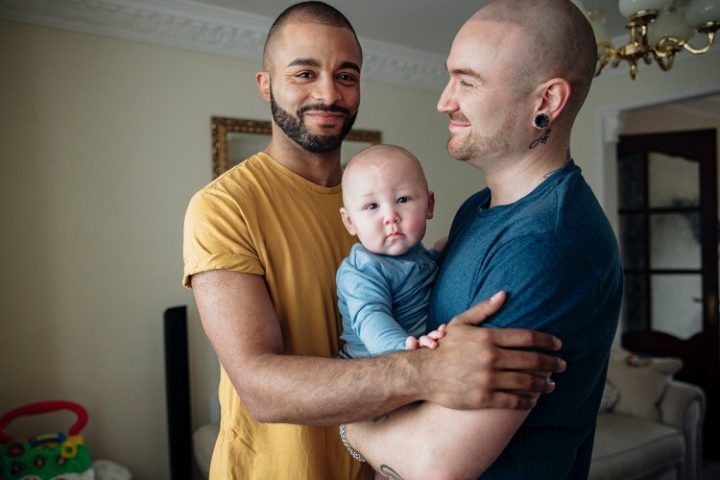
Hungary and Poland declared that they were planning to veto an initiative by the European Union (EU) Commission that could possibly coerce all member states to acknowledge surrogacy and same-sex marriage through a “European parenthood certificate.”
The EU initiative stated that its aim was “to ensure that parenthood, as established in one EU country, is recognised across the EU, so that children maintain their rights in cross-border situations, in particular when their families travel or move within the EU.”
Nonetheless, the only people who may not be legally acknowledged as the parents of the children in their care in some member states in reality are same-sex couples who adopted children, or caretakers of children conceived via surrogacy.
The president of the Federation of Catholic Family Associations in Europe (FAFCE), Vincenzo Bassi, cautioned that “the introduction of a new legal category, ‘parenthood’, which goes beyond the current terminology of ‘filiation’, does have an impact on family domestic law,” notwithstanding the EU Commission’s claims that the marriage laws of EU member states will remain intact, as family law falls under the exclusive jurisdiction of individual nations.
“Indeed, the above-said initiative of the European Commission, if approved, would automatically extend the legal effects of the filiation to all types of ‘parenthood’ legally acquired in one Member State, including through surrogacy, in all EU Member-States uniformly,” FAFCE posited in a press release.
“Beyond the declared intention of not interfering with Member States’ family law, this scenario would put the Commission’s proposal in contradiction with Art. 9 of the EU Charter of Fundamental Rights, stating that ‘The right to marry and the right to found a family shall be guaranteed in accordance with the national laws governing the exercise of these rights,’” Bassi asserted.
“A child is not an entitlement and parenthood is not a right; rather, a child is a gift and parenthood is a responsibility.”
Moreover, FAFCE voiced worries regarding “the de facto recognition of the practice of surrogacy in the initiative.”
“Not only does the practice of surrogacy violate the fundamental rights and bodily integrity of women used as surrogate mothers, but also the rights of the child, who can in this way become a victim of human trafficking,” FAFCE stated.
Back in 2020, European Commission President Ursula von der Leyen announced that “if you are a parent in one country, you are parent in every country.”
In 2021, the European Parliament conceded that the “sexual exploitation for surrogacy and reproductive purposes … is unacceptable and a violation of human dignity and human rights.” A majority of EU countries ban surrogacy, including Austria, Bulgaria, Croatia, Denmark, Estonia, Finland, France, Germany, Italy, Latvia, Lithuania, Malta, Poland, Slovakia, Slovenia, Spain, and Sweden.
Thus, while the European Commission’s proposal framed the child’s best interest as one of its tenets, “the inclusion of surrogacy as one of the areas addressed goes against these very best interests,” FAFCE added.
To be passed into law, the aforementioned initiative has to be adopted by the Council of the EU through a unanimous vote of all 27 member states after talks with the European Parliament.
The Netherlands in 2001 became the first country in the world to allow same-sex couples to marry.
Since then, 17 European countries have followed in the Netherlands’ footsteps. These countries include Austria, Belgium, Britain, Denmark, Finland, France, Germany, Iceland, Ireland, Luxembourg, Malta, Norway, Portugal, Spain, Sweden, Slovenia, and Switzerland. Most also permit same-sex couples to adopt children.
Some countries permit same-sex couples to enter civil partnerships but not to marry, namely the Czech Republic, Croatia, Cyprus, Estonia, Greece, Hungary, and Italy.
Most eastern European countries do not permit gay marriage nor civil partnerships, according to a 2022 report by the Hindustan Times.
The same Hindustan Times report said that homosexual behavior was deemed in Russia to be a crime up to 1993 and a mental illness until 1999. While Russia has since legalized homosexual behavior, a 2013 law penalizes the promotion of homosexuality among minors.
In Hungary, a law passed in 2021 made “promoting” homosexuality or gender change to minors punishable by a fine.
Assisted reproduction for lesbian couples is permitted in 12 European countries, namely, the Nordic countries, Belgium, the Netherlands, United Kingdom, Spain Austria, Ireland, and France.
Far fewer countries permit surrogate motherhood, with critics slamming the practice — which is permitted in Russia and Ukraine — as turning women into “wombs for hire.”
Yet “altruistic” surrogacy is legal in Belgium, the Netherlands, and the United Kingdom, but France, Germany, Italy, Spain, Sweden, and a handful of other countries ban all surrogacy.
According to Live Action News, research indicated that children raised by their biological married parents are physically and emotionally healthier, and are less likely to be sexually abused, use drugs or alcohol, or indulge in bad behaviors. A child living with a single mother is 14 times more likely to experience grave physical abuse than a child living with married biological parents — and a child whose mother cohabitates with a man other than the child’s father is 33 times more likely to experience severe physical abuse.
Hence, adoptive parents usually have to undergo screening and background checks prior to having a child placed in their home. Surrogacy and same-sex couples would, however, put children at a higher risk of abuse at the hands of people other than their biological parents.



